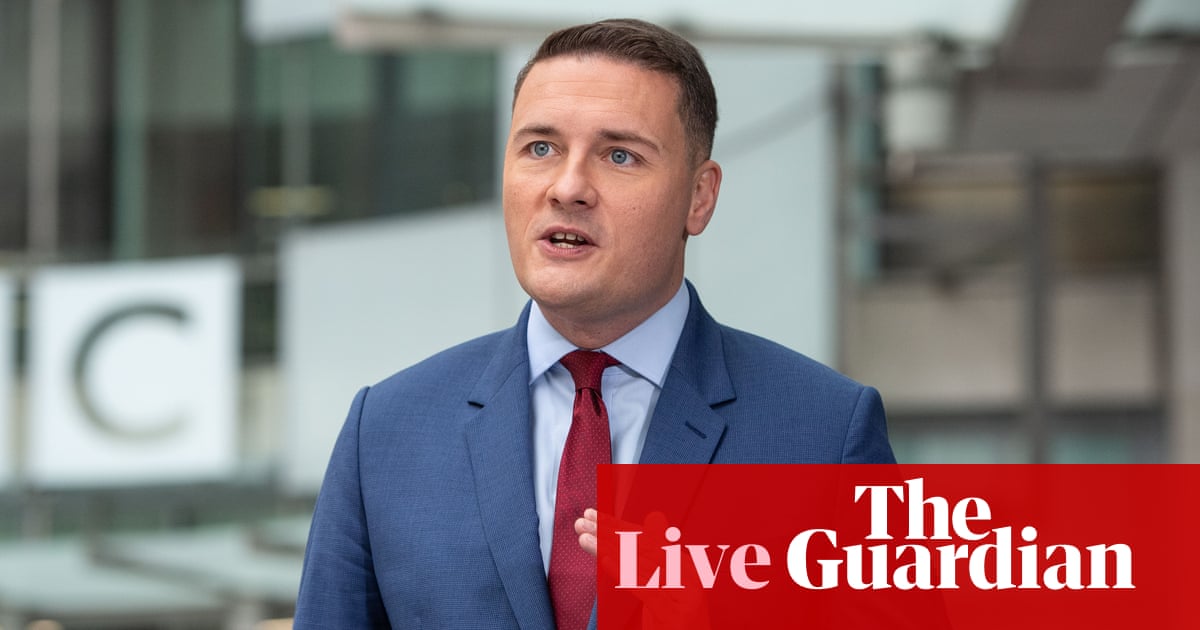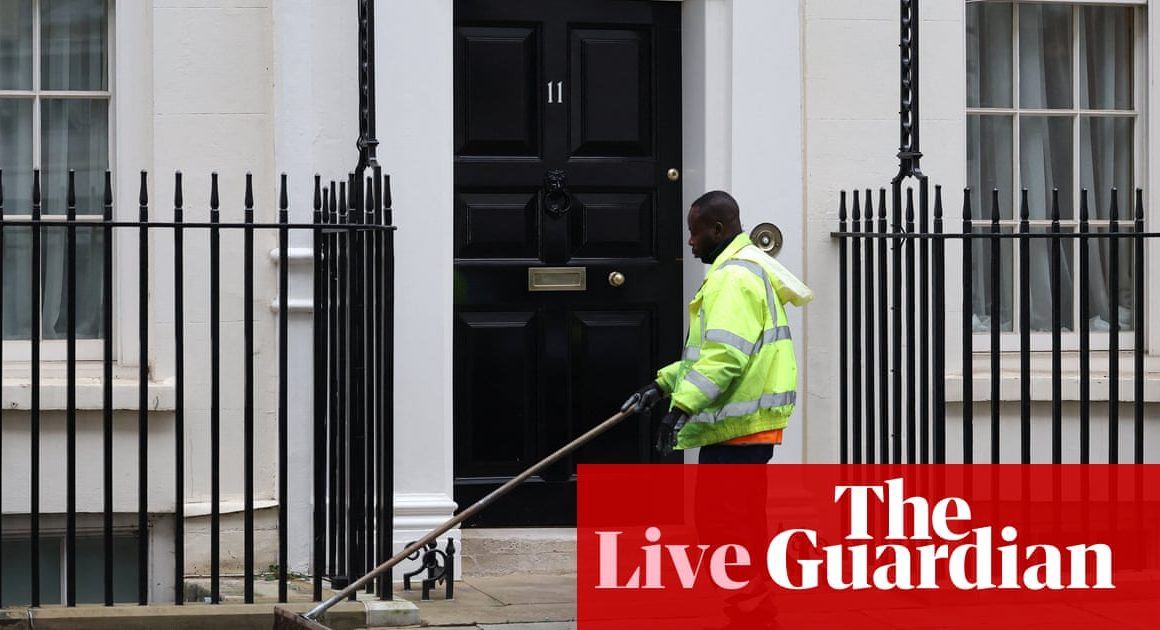Key events
Opening summary
Good morning. When the Labour government came into power, Wes Streeting, the health secretary, declared on his first day in office “the policy of this department is that the NHS is broken”. The government is going to published a 10-year health plan to fix it, and it is due to be published next spring.
Streeting has said the plan will involve three main elements: moving from analogue to digital; more focus on primary care, not hospital care; and more focus on prevention. Keir Starmer explained them in a speech on the NHS in September.
But today the government asking people who work in the NHS and use it – the “entire nation”, as the Department of Health and Social Care puts it in its news release – to contribute to a consultation how health service should change. The DHSC explains:
Members of the public, as well as NHS staff and experts will be invited to share their experiences views and ideas for fixing the NHS via the online platform, change.nhs.uk, which will be live until the start of next year, and available via the NHS App.
The public engagement exercise will help shape the government’s 10 Year Health Plan which will be published in spring 2025 and will be underlined by three big shifts in healthcare – hospital to community, analogue to digital, and sickness to prevention …
Bold ambitions for the NHS can only be achieved by listening to the expertise and knowledge of its 1.54 million strong workforce. Their understanding of what’s holding them back from performing at their best will help us bring down waiting times and provide the world class care the public deserve.
The government has already taken immediate action to address challenges in the health service and deliver an NHS fit for the future. Whether that’s agreeing a deal with resident doctors within weeks, securing a funding increase for GP practices to manage rising pressures or hiring an extra 1,000 GPs into the NHS by the end of this year, there are both short- and long-term reforms working hand in hand.
Streeting has posted a link to the online consultation page on social media.
Our NHS is broken, but not beaten.
We want your help to fix it.
Today the Prime Minister and I are launching the biggest consultation in NHS history!
Calling all patients, staff and partners – share your views and experiences for our 10 Year Plan
https://t.co/KO12G6CK4d pic.twitter.com/YhB7XaXHLm
— Wes Streeting MP (@wesstreeting) October 21, 2024
Governments launch consultations for various reasons. Clearly, when ministers are making big changes to large, important institutions, it makes sense to find out first what the public think, and occasionally these exercise throw up ideas overlooked by the thinktank, policy-making world. But that is not the only, or even the main, function of these initiatives like this. Ensuring people feel consulted can be just as important as finding out what they think.
More importantly, this is also about pitch-rolling – persuading people that an issue matters, and that change is needed. The public don’t need to be told that the NHS needs rescuing; it is regularly at or near the top of problems that people say matter to them most, according to polling. But we are less than two weeks away from a budget that is set to raise the tax burden by a record amount in cash terms (not necessarily as a proportion of GDP) and it is very, very important for the government to convince people that this is happening for reason (like fixing the broken NHS) and not just out of profligacy. Gordon Brown was the master of this; when he put up national insurance to raise money for the NHS, it turned out to be one of the most popular tax rises ever. Today’s NHS consultation is probably more about budget framing than about a scramble for ideas to pad out next year’s 10-year plan.
Here is the agenda for the day.
Morning: Keir Starmer and Wes Streeting, the health secretary, are visiting a health centre in London to launch their public consultation on the NHS’s future.
11.30am: Downing Street holds a lobby briefing.
2.20pm: Yvette Cooper, the home secretary, takes questions in the Commons.
After 3.30pm: Angela Rayner, the deputy prime minister and housing secretary, opens the Commons debate on the second reading of the employment rights bill.
If you want to contact me, please post a message below the line (BTL) or message me on social media. I can’t read all the messages BTL, but if you put “Andrew” in a message aimed at me, I am more likely to see it because I search for posts containing that word.
If you want to flag something up urgently, it is best to use social media. I’m still using X and I’ll see something addressed to @AndrewSparrow very quickly. I’m also trying Bluesky (@andrewsparrowgdn) and Threads (@andrewsparrowtheguardian).
I find it very helpful when readers point out mistakes, even minor typos (no error is too small to correct). And I find your questions very interesting too. I can’t promise to reply to them all, but I will try to reply to as many as I can, either BTL or sometimes in the blog.












